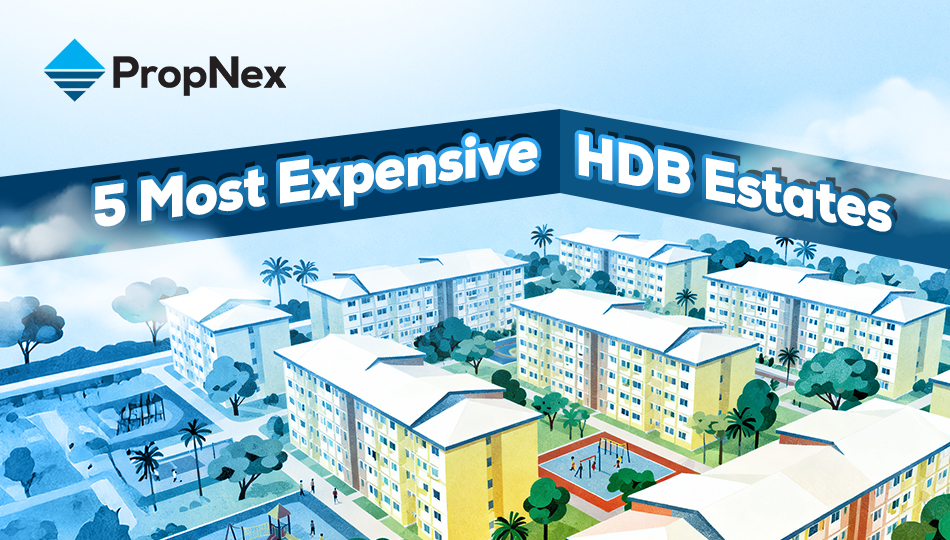Forging Ahead with Confidence in 2025: Property Market Outlook with Ismail Gafoor

As we look ahead to 2025, the Singapore property market stands at a pivotal juncture. In this exclusive interview, PropNex CEO Ismail Gafoor shares his perspectives on what lies ahead for the private housing sectors. From the impact of the US Federal Reserve's rate cuts to the resilience of the HDB resale market, he discusses the key trends, challenges, and opportunities that will shape the real estate landscape in the coming year. Read on to gain a deeper understanding of the market dynamics and what homebuyers, sellers, and investors can expect in 2025.

What is your outlook for the residential market next year in terms of new home sales and pricing? What is your projection in terms of home prices?
Given the upturn in market sentiment in the last few months that is expected to carry over to 2025, PropNex is expecting slightly better sales volume in 2025. PropNex projects that new launch market will sell about 8,000 to 9,000 new homes in 2025. In terms of new launch pricing, developers are not expected to adjust or revise their pricing due to high land costs and construction costs as well as the new rules on GFA harmonization.
We foresee possibly record benchmark launch prices particularly for the RCR, OCR and EC segments in 2025. In light of higher launch prices, the private resale market is expected to remain buoyant and sustained by demand from homebuyers who may be priced out of new launches. Private home prices are expected to grow between 3% to 4% in 2025.
What will be the key demand drivers and factors affecting the property market in 2025? What do you think are the main challenges that the market will face?
The factors that will support the residential property market in 2025 include possibly further easing in interest rates. Should the US Federal Reserve continue on its rate-cutting trajectory under the new administration of President-elect Donald Trump, borrowing costs in Singapore is expected to decline steadily. Lower interest rates would reduce mortgage financing costs, enhancing affordability and encouraging both first-time homebuyers and upgraders to enter the market.
Meanwhile, the tight labour market in Singapore, healthy household balance sheet, strong sing-dollar, and positive economic outlook will also be supportive of home ownership and sales. In October 2024, the Monetary Authority of Singapore expects GDP to come in at the upper end of the 2% to 3% forecast range in 2024, and 2025. It added that growth in both years is expected to be underpinned by the trade-related and services clusters.
The market has seen a resurgence in homebuyer interest at recent new launches in the last couple of months after a dry spell in 2023 and the earlier part of 2024. What are the possible contributing factors for this? Do you think this improvement in sentiment is a temporary blip or are you expecting it to persist through 2025?
We believe the resurgence in buyer interest was mainly spurred by the Fed rate cuts (0.5%pt in Sep, and 0.25%pt in Nov), and as developers launched more projects - an unprecedented 3,550 new units from six projects (including executive condos) were put up for sale over a period of less than two weeks in November. Developers sold close to 2,500 new private homes in November alone. Buyers who were previously sitting on the fence about buying a new home were motivated by the interest rate cuts and the deluge of new launches in October and November gave buyers an opportunity to peruse through different options within the same timeframe before making a decision.
Barring any unforeseen circumstances or cooling measures, we expect the much-improved buyer sentiment to carry over to 2025 as the US Federal Reserve continues to deliver its rate cuts and the job market continues to recover.
In view of the Fed kicking start its rate cut cycle, how far do you think the Fed rate cut will help to lift property market sentiment and drive housing demand in 2025?
As witnessed in previous fed rate cut cycles (2009 post-global financial crisis, 2020 COVID pandemic), home sales have been observed to pick up significantly following a moderation in interest rates. Besides lower mortgage rates, Fed rate cuts also stimulates economic growth and lower costs of borrowing for businesses.
Homebuyers who were previously priced out of the market may now find it more affordable to purchase a new home. For investors, lower interest rates improve the attractiveness of real estate as an investment compared to other asset classes such as bonds or treasuries, offering stable returns in a low-yield environment. Lower mortgage rates also help existing and potential landlords with better rental yields, as financing costs decline.
Another spill-over effect from lower interest rates would be more capital inflow due to the rise in global liquidity, with foreign investors flocking to safe-haven markets such as Singapore. This influx in capital could potentially support the high-end and luxury property segments, particularly in the Core Central Region (CCR), where foreign interest is a significant demand driver. With a more robust economic outlook, lower mortgage costs, coupled with the tight labour market, we believe housing demand could be well-sustained in 2025.
Will the Fed rate cut give a boost to developers' confidence? Will we see better tender participation from developers for GLS sites? Will we see more successful en-bloc sales in 2025?
We will certainly see some improvement in developers' appetite for land if sales momentum carries through 2025. With the confidence arising from the success of the November 2024 launches, we believe developers will be emboldened to bid for land to replenish their landbanks in 2025. With a number of attractive GLS sites on the 1H 2025 GLS programme, including the first private residential plots at the Greater Southern Waterfront and Turf City at Bukit Timah, developer participation in the GLS tenders should pick up in 2025. That said, developers will still remain selective about sites, opting for sites with good locational attributes such as being close to amenities and MRT stations.
As for en-bloc sales, we believe only sites that are reasonably priced with excellent locational attributes will succeed. Mega-condominium sites or sites with large asking price quantum e.g. over $500 million, will have very slim chances of getting acquired by a developer due to the huge financial and development risk involved. Some developers are also deterred by the tedious and complex process in en-bloc acquisitions, compared to acquiring land from Government land sales. All these considered, coupled with the fact that there are a number of attractive sites being offered in the 1H 2025 GLS programme and the mounting inventory of unsold units, we do not foresee another en-bloc sales frenzy in the near future, as witnessed in 2018.
For more insights and advice on how to navigate the property market in 2025, join the Property Wealth System (PWS) masterclass in May 2025 where Mr Gafoor and a team of experienced real estate veterans, including Kelvin Fong and Lim Yong Hock will be conducting classes to guide first-time homebuyers and investors on how to take advantage of current market conditions and build their wealth using real estate.














